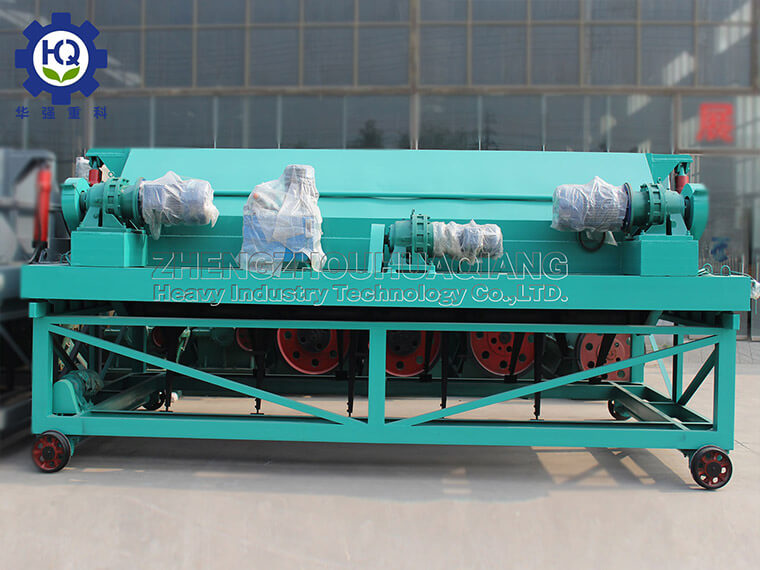Fermentation Process of Organic Fertilizer Tipping Machine for Cow Manure Composting and Fermentation
The cow manure composting and fermentation organic fertilizer tipping machine and the tank type tipping machine are currently the most widely used fermentation equipment. The tipping and tipping equipment includes a walking fermentation tank body, a walking track, a moving device, a tipping and tipping department, and a turning device.
The cow manure composting and fermentation organic fertilizer tipping machine is mainly used in the working situation where the width of the tank is not more than 5 meters and the depth of flipping is not more than 1 meter. The bearing seat of the flipping device is fixedly connected to the flipping frame, and two main shafts are fixedly connected to the bearing seat. Each main shaft is welded with several flipping shafts arranged at a certain interval and staggered angle, and each flipping shaft is welded with a flipping plate. The tipping device is connected to the walking device through a pin shaft. The bearing seat of the walking device is fixedly connected to the walking frame, and two connecting shafts I equipped with walking wheels are fixedly connected to the bearing seat. One end of each connecting shaft I is connected to one end of the connecting shaft II through a coupling. The two output shafts of the reducer II are respectively connected to the other end of the two connecting shafts II through a coupling. The electric hoist of the lifting device is fixedly connected to the walking frame, with one end of the steel wire rope wrapped around the electric hoist and the other end fixed to the overturning frame.
Using a composting machine to ferment cow manure and other raw materials – crushing the fermented organic fertilizer – stirring the raw materials evenly with a mixer – granulating with a granulator – evaporating the moisture in the particles with a dryer – cooling the particles with a cooling machine to quickly reduce the temperature – screening the unqualified particles and re crushing them for granulation – coating the qualified particles – quantitatively bagging the final organic fertilizer products. The complete set of granular organic fertilizer production line has more equipment than simple configuration, such as a stacker, dryer, cooler, and coating machine. However, the selling price of finished products is much higher than that of simple production, and the market competition is relatively strong.



.jpg)



.jpg)
